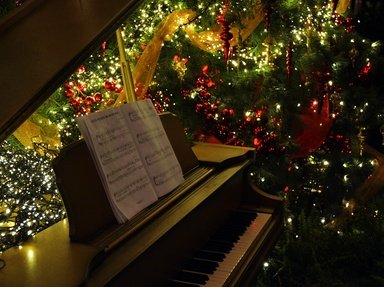
You Know ... Trivia Quiz
the First Verse - What About the Second?
The first line of the first verse of these widely-sung Christmas carols may start you singing along - but can you proceed to the second verse? Match the starting line of each second verse to the opening line of that carol.
A matching quiz
by looney_tunes.
Estimated time: 3 mins.